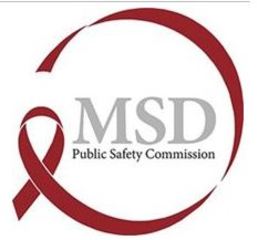Final report forces us to be prepared for the new normal
 The Marjorie Stoneman Douglas Public Safety Commission will have a final meeting next week to discuss its draft report released last month on the infamous Valentine’s Day school shooting this year that killed 17 students and staff and wounded 17 others. The report, a final version of which is due to the Governor and Legislature by January 1, contains a list of recommendations on how to avoid a future tragedy.
The Marjorie Stoneman Douglas Public Safety Commission will have a final meeting next week to discuss its draft report released last month on the infamous Valentine’s Day school shooting this year that killed 17 students and staff and wounded 17 others. The report, a final version of which is due to the Governor and Legislature by January 1, contains a list of recommendations on how to avoid a future tragedy.
The draft report organizes its recommendations on three levels: those that can be implemented quickly and require little or no funding; those that may require some low to moderate funding and implementation; and those that may require moderate to significant funding and moderate to long term implementation.
Among the recommendations:
- “Hard corners”: Mark off so-called “hard corners” in every classroom and keep them free of furniture or objects that can’t be easily moved. “Hard corners,” also referred to in the report as “safe zones,” are areas where students can hide and not be seen by someone looking through or shooting through a classroom door window.
- Code red policies: All public, charter and private K-12 schools should have policies for responding to active assailants, including protocols for code red drills and lockdowns. Require schools to install audible alarms that sound throughout campus in the event of a code red. Also, all school employees should have the ability to call a code red and lock down a school remotely.
- Bleeding control kits and training: All school districts should purchase “stop the bleed” kits for all schools and train personnel; also require faculty to learn techniques for controlling bleeding as part of first aid training.
- No “floater” security guards: The state law passed after the Douglass shooting requires a police officer or an armed guardian on every school campus. The commission suggests the law be clarified to make sure security guards are present during all school hours because some districts are using “floater” officers who spend part of their day at one school and part of their day at another.
- More money for the “Guardian” program: “The Florida Legislature should provide adequate recurring funding for the Guardian program,” which allows for certain school staff to be armed, “and should consider increased funding for individuals who are hired solely to fill the role of guardian.” The legislature should authorize school districts to raise local property taxes to pay for police and guardians and allow state school safety funding to be used for new and existing school resource officers.
- Real-time monitored surveillance cameras: School districts must allow law enforcement live access to surveillance cameras during emergencies (as opposed to tape delay footage). Schools should enhance their current surveillance systems so there are no gaps in camera coverage inside or outside school buildings.
Following the draft report, one Broward Sheriff’s Department captain resigned, a sergeant was suspended, and several school administrators reassigned. Commission chairman Bob Gualtieri, the Sheriff of Pinellas County, said he will ask the Commission to recommend state law be changed so teachers who undergo background checks and training will be allowed to have guns on campus as an additional defensive measure.
In the meantime, a myriad of lawsuits filed after the shooting will no doubt be bolstered by some of the Commission’s findings. There is now a developing line of “Active Shooter” insurance products, the result of this and other past shootings and terroristic acts, that’s the subject of our recent Florida Insurance Roundup podcast.

